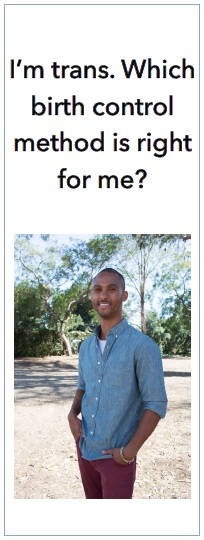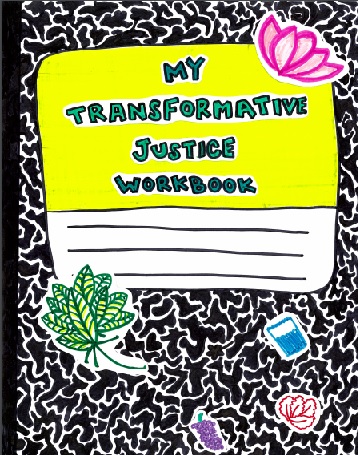Resources Library:
Start a Search:
Trans birth control information pamphlet

This brochure is for trans people who are interested in learning more about their birth control options. The brochure includes questions for providers, things to consider, and frequently asked questions about fertility and transitioning.
Published by the Virginia Sexual & Domestic Violence Action Alliance and the Virginia League for Planned Parenthood.
Tri-fold brochure.
Transformative Justice Workbook

This workbook was collaboratively created by staff of the Virginia Anti-Violence Project (VAVP) and the Virginia Sexual & Domestic Violence Action Alliance (Action Alliance) after 6+ months of conversations and a desire to engage our communities around Transformative Justice and how we both respond to and prevent violence outside of state-based systems that target and criminalize people of color ( particularly black people and communities), queer and trans people, poor folks, immigrants and undocumented communities, disabled folks, and other marginalized communities.
Click here to download the workbook.
Transformative Story Telling for Social Change
A Handbook: Why transformative storytelling approaches?
This online handbook provides conceptual reflections, practical experiences, and methodological guidance on transformative creative and visual storytelling methods. These creative storytelling approaches combine a participatory, collaborative methodology with the creative use of technology to generate stories aimed at catalysing action on pressing social issues. They are important, as they contain all these elements, to help us respond to key political, technological and cultural trends in our societies.
Click here to access the handbook.
TransformHarm.org
TransformHarm.org is a resource hub about ending violence. It offers an introduction to transformative justice. Created by Mariame Kaba and designed by Joseph Lublink, the site includes selected articles, audio-visual resources, curricula, and more. The six main categories - transformative justice, summunity accountability, restorative justice, abolition, healing justice, and carceral feminisms - organize all the content on TranformHarm.org. From here, you can explore gathered curriculum, articles, media & more.
You can use what is currently on the site, and submit recommendations to be added to the focus areas listed on the site. We hope you will use the materials to foster your own education and also share them with your communities to build something new. Only together can we transform our relationships to each other and society. We hope that this site helps in this effort.
Transforming Care in Tribal Communities for Sexual Assault Survivors Through Partnership and Technology
For many remote Indian communities, it often is difficult to create, develop and sustain trauma-informed and culturally appropriate services and resources as part of a health response for Indigenous women who have been sexually violated. Sexual assault nurse examiners (SANE) have specialized training, education, and experience in providing quality forensic medical examinations and patient-centered care to survivors. Given high medical staff turnover, it is challenging to keep SANE nurses on staff in tribal community health care facilities. Join us for this webinar to learn how the National TeleNursing Center, Hopi Health Care Center, National Indigenous Women’s Resource Center, and Hopi-Tewa Women’s Coalition to End Abuse are working effectively in partnership to respond using telemedicine to the needs of victims of sexual assault living on tribal lands with limited resources.

